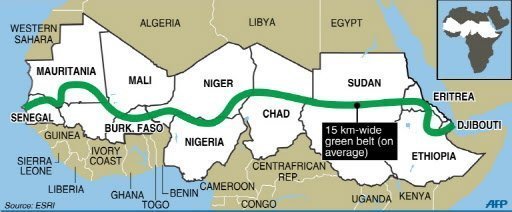There can be no life without water. Water is essential for domestic, agricultural, and industrial use. However, the availability of water to meet expected domestic and economic demands is becoming even more difficult with the impact of climate variability, aging infrastructure, and population growth..
The 22nd day of March is World Water Day, and the theme of this year’s campaign is “be the change,” which is a message to every individual to become the change they want to see in the world, reflected in every aspect of our life and not just about how we use, manage and save water.
To meet the 2030 water, sanitation, and hygiene target, stakeholders across all levels must move four times faster than the current pace. The United Nations report shows that, if we continue at the current pace, 1.6 billion people will lack safely managed drinking water, 1.9 billion people will lack basic hand hygiene facilities, and 2.8 billion people will lack safely managed sanitation by 2030.
Water and Climate Change
Water has a critical role to play in the climate crisis we are facing in the world today, and the extreme climatic condition we have today is making water more scarce and polluted. These effects are a concern because as the climate deteriorates, they worsen.
Clean water and sanitation are the 6th SDG, and it is pertinent to note that as important as water is, billions of people lack access to potable water sources. Green Habitat Initiative (GHI) is currently implementing the Project for Improved Sustainability of Integrated WASH Services (I-WASH), funded by the United States Agency for International Development (USAID). The goal of the project is to accelerate sustainable access to basic water supply in rural communities, thereby reducing their vulnerability to waterborne diseases.
In addition, it is important to note that good sanitation and hygiene are as important as the availability of clean water because poor sanitation and hygiene, especially around water bodies, lead to contamination and make it unsafe for human consumption. Consequently, the I-WASH activity also provides sustainable sanitation solutions in communities, health centers, and schools..
Image: GHI’s USAID WASH Project
Image: GHI’s USAID WASH Project
Image: GHI’s USAID WASH Project
All stakeholders, including government, international organizations, civil society organizations, the organized private sector, and individuals, are responsible for conserving our depreciating water resources.
Be the Change
“Bethe change” is the theme for this year’s World Water Day, and it is everybody’s responsibility. Here are some simple tips/ways that may seem to be insignificant but contribute to making us the change that we want to intend to become:
Another easy way to save water is by turning off the tap while brushing your teeth or shaving.
Look for leakages around the water pipes and ensure faucets/taps are appropriately tightened and not dripping water.
Taking shorter showers is an easy and effective way to save water. It is known that some people spend up to 45 minutes in the shower, leaving the shower running the whole time, which is wasteful. One can spend lesser in the shower, and you do not need to keep the water running the entire time because what is required is to wet the body, lather the body then wash up.
Image: A tap dripping with water
Source: Pixabay
Improper dumping of waste like ashes or paper in the toilet leads to wasting water because you will need to flush the toilet. Trash should be disposed of properly, and toilets should be used for their designed purpose only.
Image: cigarette bud in a toilet
Source: Pixabay
Automatic dishwashers and cloth washing machines should only be used when fully loaded, so it has to save the stress of washing twice and wasting water.
Water is a resource that is essential for human existence because not only does water regulates the earth’s temperature, it also regulate the temperature of the human body as well as carrying nutrients and oxygen to all parts of the human body. It is our collective responsibility to take care of this irreplaceable resource.
